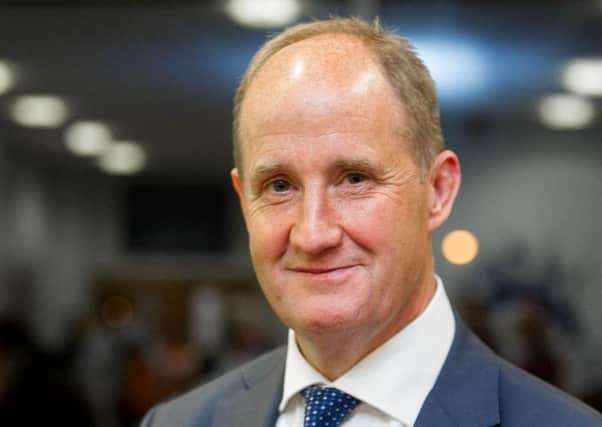Vulnerable faced with '˜catastrophic' care bills says MP


Thirsk and Malton MP Kevin Hollinrake’s comments come as a new report on the county’s social care crisis draws attention to the problems faced by the rural vulnerable and elderly.
The report, by Rural England, says that Sustainability and Transformation Plans that cover North Yorkshire are failing to “rural-proof” by placing too much emphasis on urban areas.
Advertisement
Hide AdAdvertisement
Hide AdAdditionally, it highlights the high prevalence on fuel poverty in the area, which affects 10 per cent, or nearly 25,000 households, with Craven, Richmondshire, Ryedale and Scarborough particularly suffering; and that the elderly face specific challenges of isolation, often geographically separated from family; and further cut off by poor digital connectivity in many rural areas.
But it is the “terrifying social care crisis”, with higher home care costs and greater distances that are condemning those living outside major towns and cities, the report says.
Mr Hollinrake sits on the Government’s Select Committee for Housing, Communities and Local Government, which last year successfully called on Chancellor Philip Hammond to commit an extra £2bn for adult social care.
He said: “I think anybody who lives in a rural area knows that we face one of the biggest problems in the country. More and more people are having to fund their own care. We are seeing really difficult cases in our surgeries where people are facing huge bills with long term conditions like dementia. We are seeing cases with catastrophic costs involved.
Advertisement
Hide AdAdvertisement
Hide Ad“We’re lucky in North Yorkshire that we have some excellent communities where people want to help and to volunteer for support services but all these factors are coming together to create a significant crisis”.
Mr Hollinrake said a long term solution needed to be considered. His select committee has visited Germany, which has implemented an auto-enrolement system where people pay a social insurance which will later be used to fund social care needs, much like the pension here.
He said: “We have to think more strategically about how we are going to solve the challenges.”
North Yorkshire County Council said it agreed with concerns raised in the report about Sustainability and Transformation Plans. Richard Webb, corporate director for adult services and health integration said: “North Yorkshire is one of only very few counties that are covered by three STP plans - each based around large urban areas like Leeds and Bradford, Middlesbrough, and Hull. This means the focus for planning services is likely to be upon large acute hospitals outside of the county and not necessarily upon the more local health services currently in place in North Yorkshire.
Advertisement
Hide AdAdvertisement
Hide Ad“We continue to invest in prevention to help people to have a better quality of life and to keep costs down but funding pressures mean that even this work will be squeezed without fundamental changes to the adult social care system.”
Working together is key
Public bodies and services need to work together to ensure there is a future not only for social care, but for rural communities as a whole, a charity has said.
Caroline O’Neil, policy and partnerships officer at Community First Yorkshire, said local authorities and health services, along with the voluntary and community sector, should bring in practical working practices that enable them to join forces. The report highlighted difficulties in recruiting and retaining care staff, and commissioning care in some areas due to their physical isolation.
She said more support needed to be given to be care workers, to promote caring as a profession to young people in rural areas, and consider them as “essential workers” when it came to community housing.
Advertisement
Hide AdAdvertisement
Hide Ad“Support for older people in their own homes creates sustainable opportunities,” she said. “It can help sustain a market town, a village shop and also create employment. Keeping people in their homes can create vibrant communities where people look after each other.”